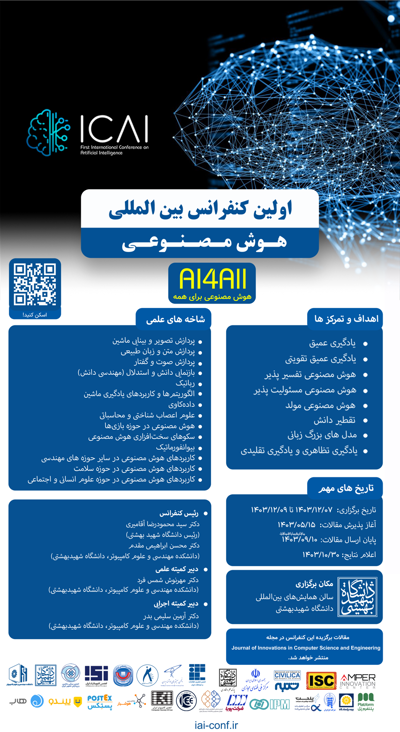0% Complete

نویسندگان :
کلمات کلیدی :
چکیده :
لیست مقالات بایگانی شده
Mohsen Piri - Babak Nouri-Moghaddam - Abbas Mirzaei
Yousef Nahi Salman - Maral Kolahkaj
Mahdi Rajaeian - Shadi Chegini
Seyed Mohammad Javad Toghraee - Hadi Nilforoushan - Nafiseh Sanaee
Hosein Moein - Maryam Azimzadeh - Aida Arezumand
Ahmad Nasrollahpour - Mohammad Khanabadi Borchalouei - Toktam Khatibi
Reyhane Salehbeigi - Noushin Riahi
Ali Rahmanipur - Shakila Mohammadi
Seyyed Ali Zendehbad - Farinaz Azari - Hadi Dehbovid
Sahar Farazi - Yasser Shekofteh

